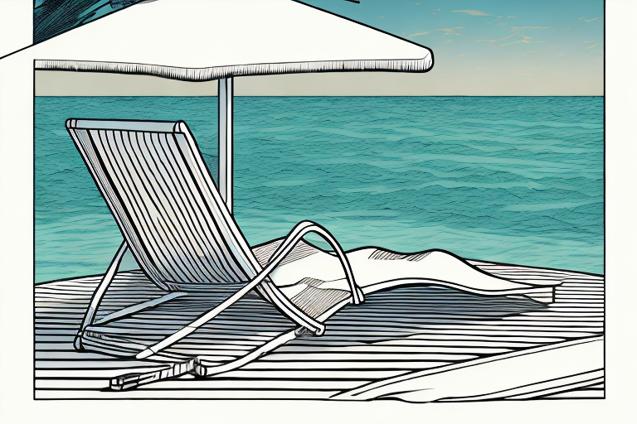
Discover the benefits of napping while sailing and how it can improve your overall experience on the water, from better decision-making to increased energy levels.
The Benefits of Napping on a Sailing Trip
Sailing the open seas with your family is an incredible experience that offers a unique sense of freedom and adventure. However, it also comes with its own set of challenges, one of which is ensuring that you and your family get enough sleep and relaxation while on board. In this article, we will explore the benefits of napping on a sailing trip and provide some practical tips for making the most of your downtime at sea.
The Importance of Sleep and Relaxation on a Boat
Before we dive into the benefits of napping, let’s first discuss the importance of sleep and relaxation on a boat. Sailing can be physically and mentally demanding, with long days spent navigating, adjusting sails, and performing various tasks to keep the boat running smoothly. Add in the ever-changing weather conditions and the constant motion of the boat, and it’s easy to see why getting enough rest is crucial for maintaining your health and well-being while at sea.
Adequate sleep is essential for:
- Physical recovery and repair
- Mental clarity and focus
- Emotional well-being and mood regulation
- Maintaining a strong immune system
- Overall energy levels and stamina
In addition to the physical and mental benefits, getting enough sleep and relaxation on a boat can also help improve your overall sailing experience. When you’re well-rested, you’re more likely to be alert and focused, making it easier to navigate and make important decisions while on the water. Plus, being well-rested can help you better enjoy the beautiful surroundings and quality time with your family.
The Benefits of Napping
While a good night’s sleep is essential, napping can also provide numerous benefits, especially when you’re on a sailing trip. Here are some of the key advantages of incorporating naps into your daily routine at sea:
Improved Alertness and Performance
Napping has been shown to improve alertness, reaction time, and overall cognitive performance. This can be particularly beneficial on a sailing trip, where quick thinking and decision-making are often required. A short nap can help you feel more refreshed and focused, allowing you to better handle the challenges that come with sailing.
Enhanced Mood and Emotional Well-being
Sailing can be an emotional rollercoaster, with the excitement of new experiences and the stress of dealing with unexpected challenges. Napping can help regulate your mood and emotions, providing a much-needed break from the ups and downs of life at sea. A quick nap can help you feel more relaxed and better equipped to handle any obstacles that come your way.
Increased Energy and Stamina
Long days on the water can be physically demanding, and napping can help you recharge your batteries and maintain your energy levels throughout the day. A short nap can provide a boost of energy that can help you tackle tasks more efficiently and enjoy your time on the water.
Better Sleep Quality at Night
Napping during the day can actually help improve your sleep quality at night. This is particularly important on a boat, where the constant motion and unfamiliar sleeping environment can make it difficult to get a good night’s rest. A short nap during the day can help you feel more rested and ready for a full night’s sleep.
Tips for Napping on a Sailing Trip
Now that we’ve covered the benefits of napping, let’s discuss some practical tips for incorporating naps into your sailing routine:
Choose the Right Time
The best time for a nap will vary depending on your individual needs and schedule. However, many people find that early afternoon, around 1-3 pm, is an ideal time for a quick snooze. This is often when energy levels naturally dip, making it easier to fall asleep and wake up feeling refreshed.
Keep It Short
A short nap of 20-30 minutes is usually sufficient to provide the benefits mentioned above. Longer naps can lead to grogginess and make it more difficult to fall asleep at night. If you’re struggling to stay awake during a longer nap, try setting an alarm to ensure you don’t oversleep.
Find a Comfortable Spot
Finding a comfortable spot to nap on a boat can be challenging, but it’s essential for getting the most out of your nap. Look for a quiet, shaded area with minimal distractions. If possible, use a cushion or pillow to support your head and neck, and consider using a light blanket or towel to cover yourself for added comfort.
Minimize Distractions
Noise and other distractions can make it difficult to fall asleep and stay asleep during a nap. Consider using earplugs or noise-canceling headphones to block out any unwanted sounds. If you’re sensitive to light, an eye mask can help create a darker environment that’s more conducive to sleep.
Listen to Your Body
Finally, it’s essential to listen to your body and recognize when you need a nap. If you’re feeling fatigued or struggling to concentrate, it’s probably a good time to take a break and recharge with a quick snooze.
Conclusion
Incorporating naps into your sailing routine can provide numerous benefits, including improved alertness, enhanced mood, increased energy, and better sleep quality at night. By following the tips outlined above, you can make the most of your downtime at sea and ensure that you and your family are well-rested and ready to tackle the challenges and adventures that come with sailing the open seas.